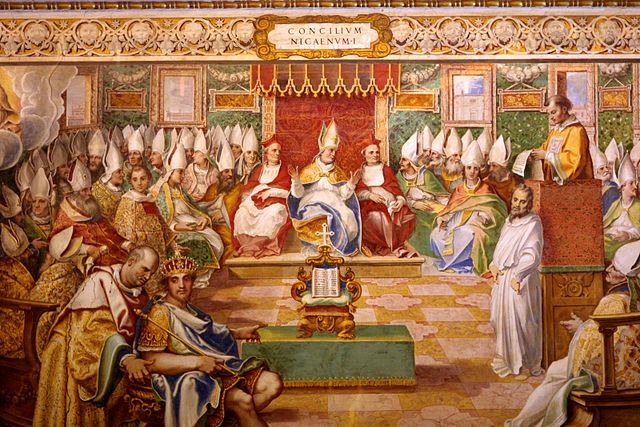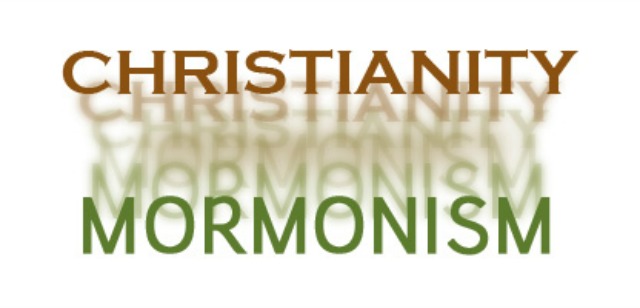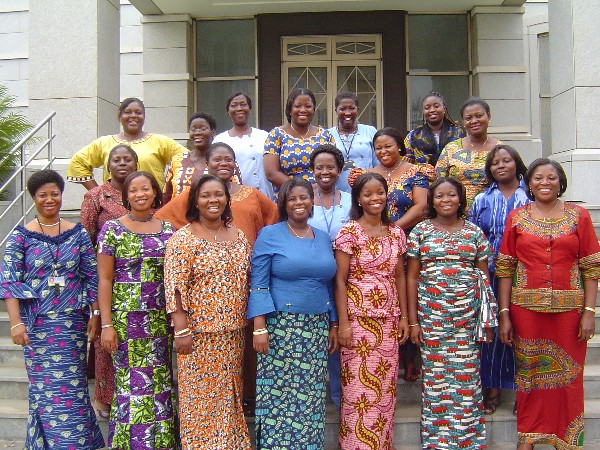Question
Gramps,
What is the church’s take on the Council of Nicea as it relates to LDS doctrine?
Court
Answer
Court,
Some may not know what the Council of Nicea is about, so let me briefly explain it, then I’ll take up your question. In the early centuries after Jesus ascended to heaven, the largest chore for the Apostles was to maintain doctrinal integrity within the Church. This is documented rather clearly in the New Testament, where we see the Apostles not only encouraging the early saints in their endurance within the faith, but also correcting them where errant doctrines were evident. Because the Apostles led the early Church of Christ through revelation, this correction was essential in preserving the truths Jesus had taught them during His life, and revealed to them after His resurrection.
However, the Apostles weren’t able to maintain their number, and one by one, they passed away, taking with them the keys of the Priesthood that allowed them to receive revelation for the whole Church. What was left was the regional and local leadership, who only had authority pertaining to their area of authority. They had priesthood authority, but not the keys the Apostles had–keys necessary to lead and guide the Church as a whole. These men carried on as best they could. However there were strong influences of Greek philosophy finding their way into the doctrines of the Church. In some cases these influences flatly opposed what the Apostles had taught.
Well, to shorten the story, this type of thing happened well into the third century following Jesus’ birth. Without direct revelation from God to sort out the truth from the errors, there were sharp divisions among the various branches of the Church. Finally a council was called for, and it met in the city of Nicea in the year 325. It has since been called “The First Ecumenical Council”. One of the purposes of the council was to establish a firm definition or ‘liturgy’ of faith for all of Christianity. One of the key elements to come out of the council at Nicea is what is now known as the Nicean Creed. In short, it is a statement of belief on the part of Christianity regarding the existence, and nature of God.
Now, before I go too much further I want to explain that my original intent in this reply was to quote the creed itself. However, in process of research, I have found that there isn’t a single version that is accepted universally among the Catholic and Protestant faiths. They are each quite similar, but significant differences also exist. So, to avoid speaking inaccurately, I would simply ask you to read the version I have posted here with the understanding that this is only one of a few different types used in many Christian religions today.
This version was published in 1975:
We believe in one God,
the Father, the Almighty,
maker of heaven and earth,
of all that is, seen and unseen.
We believe in one Lord, Jesus Christ,
the only Son of God,
eternally begotten of the Father,
God from God, Light from Light,
true God from true God,
begotten, not made,
of one Being with the Father.
Through him all things were made.
For us and for our salvation
he came down from heaven:
by the power of the Holy Spirit
he became incarnate from the Virgin Mary,
and was made man.
For our sake he was crucified under Pontius Pilate;
he suffered death and was buried.
On the third day he rose again
in accordance with the Scriptures;
he ascended into heaven
and is seated at the right hand of the Father.
He will come again in glory to judge the living and the dead,
and his kingdom will have no end.
We believe in the Holy Spirit, the Lord, the giver of life,
who proceeds from the Father and the Son.
With the Father and the Son he is worshiped and glorified.
He has spoken through the Prophets.
We believe in one holy catholic and apostolic Church.
We acknowledge one baptism for the forgiveness of sins.
We look for the resurrection of the dead,
and the life of the world to come. Amen.
So, Court, Now that we’ve examined, in brief at least, what the Nicene Creed is, let’s look at your question again. The LDS Church’s take on the Nicene Creed is something I cannot be 100% sure about, as I am not an official spokesman, or ordained leader, in the LDS Church. However my testimony leads me to some clear conclusions. First of all, the LDS Church does not accept the Nicene Creed as authoritative doctrine. Pertaining to the subject of God, and who we worship, Joseph Smith wrote what we now call the Articles of Faith. The first Article of Faith says this:
We believe in God the Eternal Father, and in his son Jesus Christ, and in the Holy Ghost.
I won’t take time comparing the two, but instead give what insight I have on the matter. The Nicene Creed came about due to confusion within the early Church on basic doctrines due to a loss of guidance by direct and ongoing revelation. In other words, it was the best that could be done by the leaders at the time. They simply lacked the tools they needed (keys of the priesthood) to get the answers they were seeking.
The LDS Church has not given any official response to the Nicene Creed. My feeling is that it’s because, in part, it is not really anything they must worry about. It’s not their business what other religions teach. I think this because it is the same position the LDS Church seeks for its own doctrines. This is expressed in another Article of Faith, the 11th:
11 We claim the privilege of worshiping Almighty God according to the dictates of our own conscience, and allow all men the same privilege, let them worship how, where, or what they may.
In the end, all who seek to honor, revere, and build up the name of Jesus Christ in their lives, families, homes, and communities will be blessed for their efforts. I have a strong testimony of the good that is being done around the world in the name of Jesus Christ, including those efforts that are not a part of the LDS Church and its activities. There are differences in some areas. However as long as we stand together as witnesses of Christ, ready to act and serve in his name, as he taught us to do during His ministry, wondrous things will be accomplished around the world.
Thank you, Court, for your question, and I hope God continues to bless you in all the good you seek to accomplish.
Gramps







